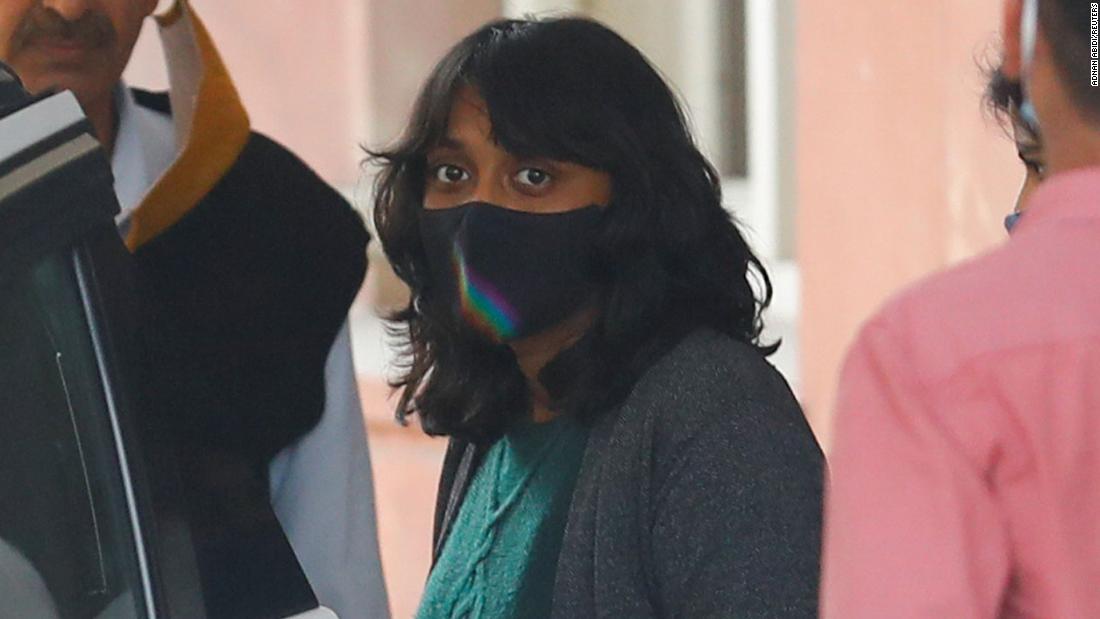Ravi has already received bail.
“In all the years that someone asked me where I see myself in 5 years, I would never have answered ‘arrest’, but here I was,” she wrote in a statement posted on Twitter. “Locked in my cell, I wondered when it became a crime to think that the most basic elements of sustenance on this planet were both mine and theirs.”
Ravi’s arrest sparked outrage by leading figures, including author Meena Harris, niece of US Vice President Kamala Harris, and many Indian politicians, who have accused authorities of trying to intimidate and gag a young woman for speaking her mind.
The toolkit, which was unsigned and publicly available on an encrypted sharing site, instructed people to call government officials, share solidarity hashtags on social media, participate in rallies and sign petitions. He gained visibility after Swedish climate activist Greta Thunberg tweeted a link to him on February 4, crediting “people on the ground in India”.
However, its launch seemed to irritate the Indian authorities. On the same day of Thunbgerg’s tweet, Delhi police announced that they would investigate the creators of the toolkit and try to accuse them of sedition, provoking or inciting a criminal riot and conspiracy because it called on its followers to “wage an economic, social, cultural and regional against India. “
The police in New Delhi argued that the toolkit’s main objective was “disinformation and dissatisfaction against the legally elected government”. The authorities accused Ravi, whose grandparents are farmers, of helping to create the document, which was unsigned and made publicly available on an encrypted sharing website.
Historically, Indian farmers sell their products at auction at their state’s Agricultural Products Market Committee, where sellers are guaranteed to receive at least the minimum price agreed by the government. There were restrictions on who could buy and prices were limited for essential commodities.
The new laws have dismantled this system, allowing farmers to sell their produce to anyone at any price.
Prime Minister Narendra Modi, long a supporter of free market reforms, has argued that the new legislation will allow farmers to sell directly to buyers or to other states without intermediaries.
But many farmers say the changes will allow large companies to lower prices. Although farmers can sell their crops at higher prices if demand is available, many are concerned that they may struggle to reach the minimum price in years of oversupply.
